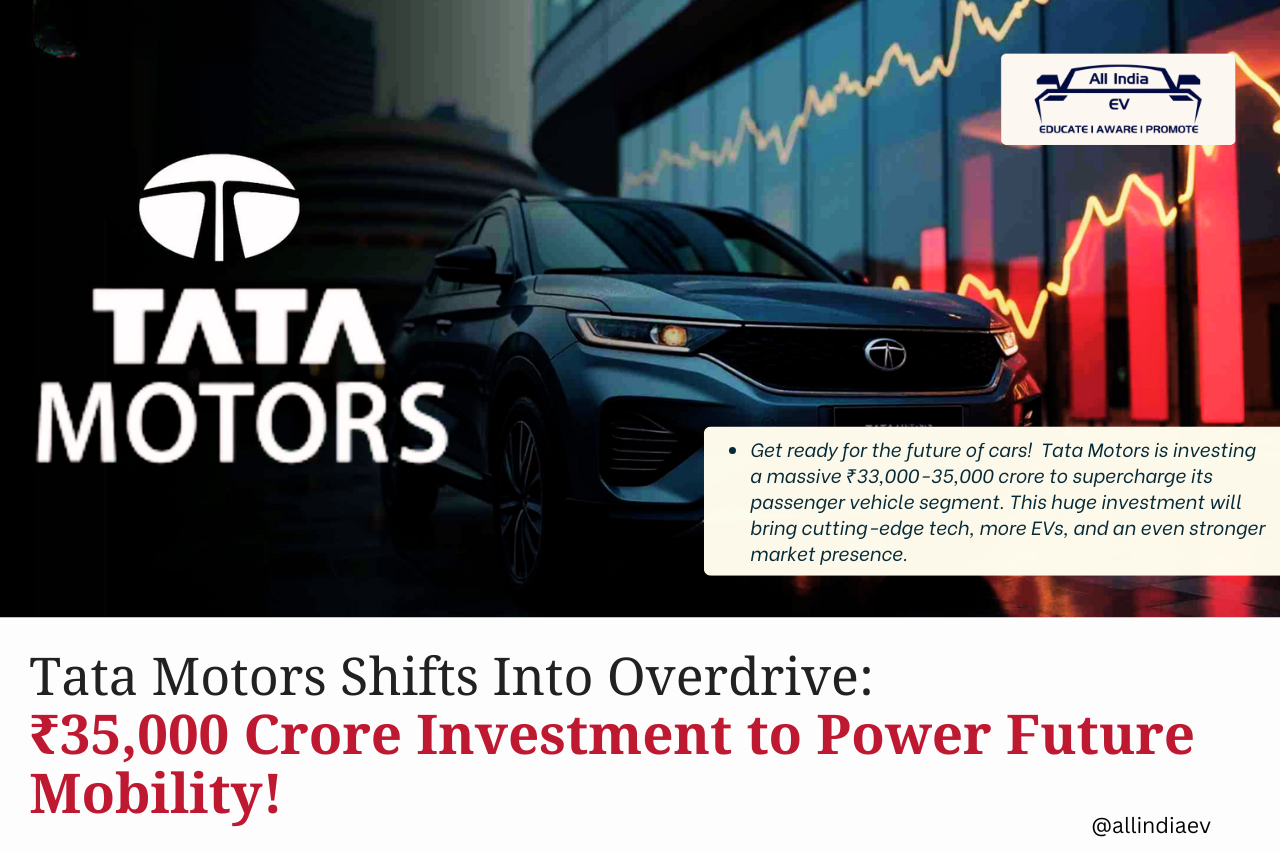
Tata Motors to Invest ₹33,000–35,000 Cr by FY30, Launch 7 Models, Target 16% Market Share by FY27, as Indian PV Market Set to Hit 60 Lakh Units by 2030
In a significant move aimed at consolidating its leadership in India’s dynamic passenger vehicle (PV) and electric vehicle (EV) space, Tata Motors has announced plans to invest between ₹33,000 crore and ₹35,000 crore during FY26–FY30. This forward-looking strategy includes 30 major product actions, including seven all-new model launches, reinforcing the company’s commitment to innovation, sustainability, and mobility transformation.
The homegrown automaker is eyeing a robust 16% market share in the PV segment (including EVs) by FY27, with aspirations to expand that figure to 18–20% by 2030. According to Tata Motors’ internal projections, India’s domestic PV market is expected to touch 6 million annual units by the end of this decade—providing the perfect runway for growth.
EVs Take Center Stage in Tata’s Growth Story
Tata Motors has reaffirmed its strong EV-first approach, with electric vehicles projected to contribute 20% of its PV volumes by FY27, and 30% by FY30. The upcoming Harrier.ev and Sierra.ev are key pillars in this transformation journey, backed by a strategy that focuses on expanding the charging ecosystem, especially in Tier 2 and Tier 3 towns, where EV adoption still faces infrastructural bottlenecks.
The automaker also highlighted its ambition to achieve EBITDA breakeven in its EV business by FY26, signaling growing confidence in the economic viability of electric mobility at scale.
Product-Led Transformation and Tech Investments
The company plans to roll out:
- 7 new nameplates
- 23 product refreshes
- Upgrades in powertrain technology
- Innovations in software-defined vehicles (SDVs)
Tata Motors’ roadmap prioritizes technology and sustainability, with a strong focus on connected vehicles, electrification, and alternate fuels like CNG. Efforts are also underway to improve the total cost of ownership, making Tata EVs a compelling choice for both personal and fleet buyers.
Expanding Reach and Enhancing Experience
To support the anticipated surge in volumes, Tata Motors will broaden its sales and service network, especially across semi-urban and rural geographies. The goal is to ensure customer confidence and service readiness align with the company’s EV expansion plans.
Market Outlook: SUVs to Dominate, Hatchbacks Under Pressure
On a broader industry level, Tata Motors foresees:
- Continued dominance of the SUV segment
- Faster growth in MPVs
- Dwindling demand for entry-level hatchbacks, largely due to fewer launches and price pressures
The company attributes its long-term confidence to India’s rising GDP, consumption-led demand, and shorter vehicle replacement cycles, all of which are pushing the PV industry into a new growth phase.










